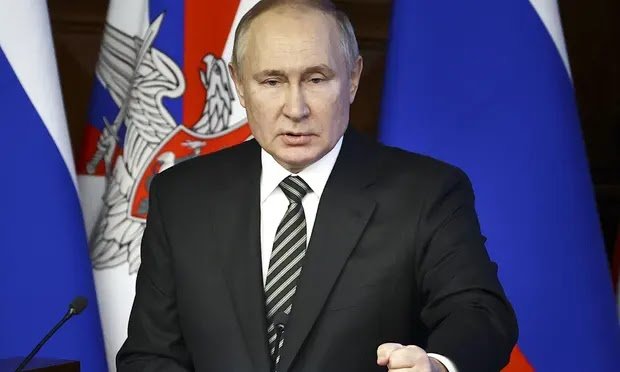Russian spokespeople daily
deny any intention to invade. So, too, did Russia’s president, Vladimir Putin,
when he met the French leader, Emmanuel Macron, last week, and when he spoke to
US president Joe Biden on the phone. There are two problems with this. First,
given Putin’s Johnsonian relationship with the truth, few western governments
believe the denials. Second, Putin has not explained why, if his intentions are
peaceful, more than half of Russia’s armed forces, including 130,000 troops,
are massed on Ukraine’s borders. It could all be a bluff. But who would
bet the house on that?
So
what drives Putin?
There are numerous theories.
Putin is said to want to rebuild a Russian sphere of influence in eastern
Europe, principally embracing former Soviet republics such as now independent
Estonia, Latvia, Lithuania, Belarus, Georgia and Ukraine. He has frequently
bemoaned their “loss” after the Soviet Union collapsed. Putin may also hope to
demonstrate to the west (and Russians) that the country is still a superpower,
even though by most measures (nuclear weapon stockpiles and geography apart) it
is a failing medium-sized power.
Why
Ukraine?
Putin fears strategically
important Ukraine, commanding Russia’s southwestern flank, is assimilating
into the west. He objects to its growing closeness to NATO. He also opposes
Kyiv’s developing links with the EU. Worse still, from his point of view,
Ukraine is a democracy, with free speech and free media, which freely elects
its leaders. In practice, Russians enjoy no such freedoms – if they followed
Ukraine’s example, Putin would not last long. More broadly, Putin is a
nostalgic revisionist who regards Ukraine as an integral part of historical
Russia and its loss as a symbol of Russia’s cold war defeat.
Why
now?
Putin may sense western
weakness. NATO was humiliated last year in Afghanistan and Joe Biden, who
campaigned to end wars, not engage in new ones, has refocused American foreign
policy and military resources on China, not Europe. It’s also suggested Putin
needs a big victory to shore up his domestic support, vindicate his anti-western
policies, excuse rampant regime corruption and kleptomania, and justify the
hardships Russians endure as a result of western sanctions imposed after his
first attack on Ukraine, in 2014. That was when he annexed Crimea and
took de facto control of the eastern Donbas region.
What
are Putin’s demands?
To end the standoff (maybe),
Putin wants NATO to promise never to accept Ukraine (or Georgia and Moldova) as
members. He wants the alliance to pull back from “frontline” countries such as
Poland, Romania and Bulgaria, former members of the defunct Warsaw Pact. He
wants Kyiv to accept autonomous status for the Donbas region and relinquish its
claim to Crimea (as part of the so-called Minsk accords). He wants to
limit or halt deployments in eastern and southern Europe of new US medium-range
missiles. More ambitious still, he wants to redesign Europe’s “security
architecture”, to re-establish Russia’s influence and extend its geopolitical
reach. To most of this, the US says “no”. Hence the current crisis.


